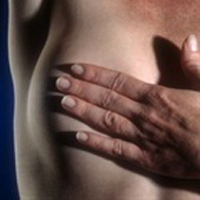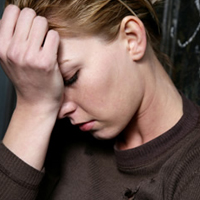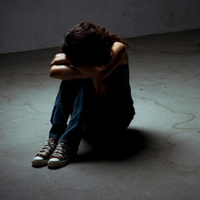Medical complications
A study sponsored by the College of Physicians and Surgeons of Ontario found that women who had undergone abortion experienced:
- 4 times higher rate of hospitalization for infections
- 5 times higher rate of a surgical event
- nearly 5 times higher rate of hospitalization for psychiatric problems.
The Ontario study compared abortive women to those who had not undergone abortion.
In 2000, the UK’s Royal College of Obstetricians and Gynecologists established that the immediate physical complication rate of induced abortion is at least 11%.(1) This figure does not include complications that arise after days, weeks or months. Applying that rate to the the 100,000 abortions in Canada means that over 11,000 women suffer complications each year due to abortion. An American study from 2000 found an even higher complication rate of 17%.(2)
Immediate physical complications include:
- Perforations
- Sepsis
- Pelvic Inflammatory Disease
- Pain due to endometriosis
- Uterine hemorrhage
- Retained fetal or placental tissue
Long-term complications include:
- Uterine perforation – can cause infertility
- Cervical damage
- Placenta previa
- Breast cancer
- Premature births
- Ectopic pregnancy
- Future offspring have a higher risk of prematurity. Cerebral palsy and other disabilities result from prematurity
Breast cancer

Estrogen is a known carcinogen. When a pregnancy is suddenly interrupted by abortion, especially before the 32nd week, the cancer-vulnerable breast tissue remains in an immature stage(breast lobule maturation is completed at 32 weeks gestation) while being exposed to high levels of estrogen. This results in an exponentially higher risk of breast cancer. Abortion as a risk factor in breast cancer has been supported by more than 20 peer-reviewed, published scientific studies. The scientific studies average a 30% increased risk of breast cancer due to abortion.(3) Therefore, we can say that carrying a child to term presents far less health risk than does abortion.
To learn more about the abortion-breast cancer link, visit www.abortionbreastcancer.ca, www.abortionbreastcancer.com, and www.hushfilm.com.
Coercion & pressure

Despite the rhetoric of pro-choice politicians and the abortion industry, those who are getting abortions are not doing so because of freedom of choice. They're doing so because they feel they have no freedom and no choice. Women are doing so out of desperation.
Most women getting abortions feel hemmed in by outside pressures. Very often it is a boyfriend coercing her to get the abortion. Sometimes young women will even feel pressured by a family doctor or a parent who suggests that her life circumstances are not conducive to having a baby. Other times it is the fear and uncertainty of external circumstances.
The "freedom of choice" slogan does not reflect the reality of where these women are. Several studies have been conducted offering evidence of the coercion/pressure as a major instigator of abortion decisions.
Following are examples:
- 64% of women who had abortions report that they felt pressured to abort by others(4)
- A survey of women conducted 15 years after their abortions found that 75% regretted having the abortion and by their own testimony, said they made the wrong choice.(5)
- As many as 60% to 83% of women undergoing abortion would have actually preferred to give birth if only their circumstances would have been better.(6)
Therefore, we pro-lifers are really the ones who are increasing the freedom of women when we give them the many alternatives to abortion: the support ministries offered in the church, through pregnancy centres, etc.
The powerful book, Forbidden Grief, by psychotherapist Theresa Burke contains testimonials from many of her patients who were pressured into abortion by a boyfriend, husband, family, doctor or parent. It is a must-read and can be purchased at our on-line store.
Post-traumatic stress disorder

Abortion touches the most intimate part of a woman’s being. Her very femininity is connected to, and defined by, the potential for motherhood. At some level, the destruction of a pregnancy is felt as a deprivation; an act of violence against herself. For a large percentage of women therefore, abortion is experienced as a traumatic experience.
Reporting procedures for psychological harm after abortion do not exist in Canada. However, some statistically-valid studies have been conducted which establish a baseline. These studies indicate that 14% - 20% of women who abort will experience post-traumatic stress disorder (PTSD).(7) This means that every year, up to 20,000 Canadian women will experience PTSD after having an abortion.
Furthermore, this baseline estimate is conservative and the actual rate of PTSD may be much higher. These same studies also found that:
50% of women had many but not all, of the symptoms of PTSD.(8)
65% of women experienced multiple symptoms of PTSD. (9)
Suicide risk

A study done in Finland found that the suicide rate associated with abortion is 6 times higher than the suicide rate associate with childbirth.(10)
In September 2011, the prestigious British Journal of Psychiatry published a study consisting of the most powerful meta-analysis ever done on the mental health risks of abortion. The researcher, Priscilla Coleman, conducted a meta-analysis of 22 separate studies which analysed the experiences of a total of 877,000 women, of whom 163,831 had had an abortion. The results revealed that women who had undergone an abortion experienced an 81 per cent increased risk of mental health problems, a 155 percent greater risk of trying to commit suicide, and that nearly 10 per cent of the incidence of mental health problems were shown to be directly attributable to abortion.(11)
Maternal death after abortion
The same Finnish study of authoritative government statistics established that women who undergo induced abortion experience a death rate nearly four times greater than women who give birth.(12) This excludes death from suicide.
Why aren't women being told?
If a woman has a right to choose, she certainly has a right to KNOW all the risks associated with a medical procedure. Otherwise she cannot give informed consent. Consider sharing these facts with your doctor and your representative of provincial or federal government.
Footnotes
- Elizabeth Ring-Cassidy and Ian Gentles, "Women’s Health After Abortion". (Toronto: Deveber Institute, 2003), 10
- ibid, 12. Cassidy and Gentles cite the work of Major B, Cozzarelli C, Cooper ML, Zubek J, Richards C, "Psychological response of women after 1st trimester abortion", Archives of General Psychiatry, Aug 2000
- ibid, 17
- Theresa Burke with David C. Reardon, Forbidden Grief: The Unspoken Pain of Abortion", (Springfield, IL: Acorn Books), 115. Burke cites the work of Rue, "Induced Abortion and Traumatic Stress", op. cit. (ch.1 site 1)
- Peter Kreeft, "Moral Theology of Homosexuality", http://www.peterkreeft.com/audio/11_moral-theology/peter-kreeft_moral-theology.mp3. Kreeft cites the research of psychologist David C. Reardon from his books "Rachel Weeping" and "Abortive Women: Silent No More".
- Theresa Burke with David C. Reardon, Forbidden Grief: The Unspoken Pain of Abortion", (Springfield, IL: Acorn Books), 114.
- ibid, 116. Burke cites 2 studies. One by Catherine Barnard, "The Long-term psychological effects of abortion". The other by Rue, "Induced Abortion and traumatic stress".
- ibid, 116. Citing Barnard’s study of 80 women at a Baltimore clinic who had undergone abortion 3 to 5 years earlier.
- ibid, 116. Citing Rue’s study of 217 American women.
- Elizabeth Ring-Cassidy and Ian Gentles, "Women’s Health After Abortion". (Toronto: Deveber Institute, 2003), 92
- Priscilla Coleman, "Abortion and mental health: quantitative synthesis and analysis of research published 1995–2009", (The British Journal of Psychiatry, September 2011),
- Elizabeth Ring-Cassidy and Ian Gentles, "Women’s Health After Abortion". (Toronto: Deveber Institute, 2003), 91
